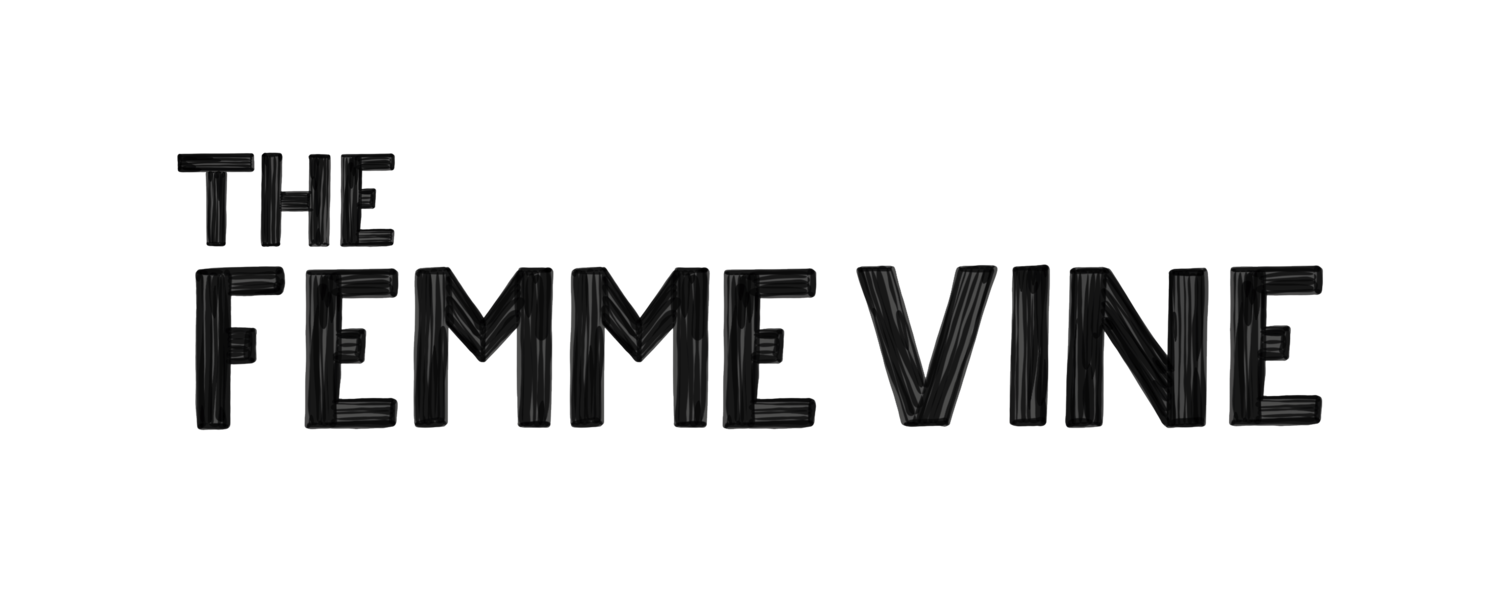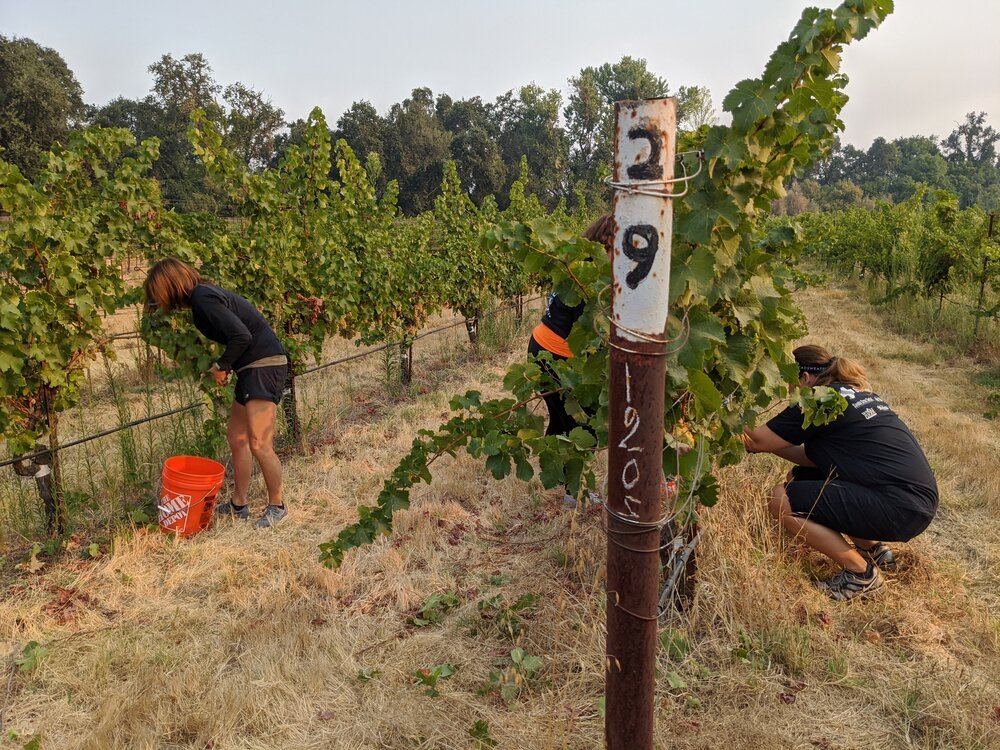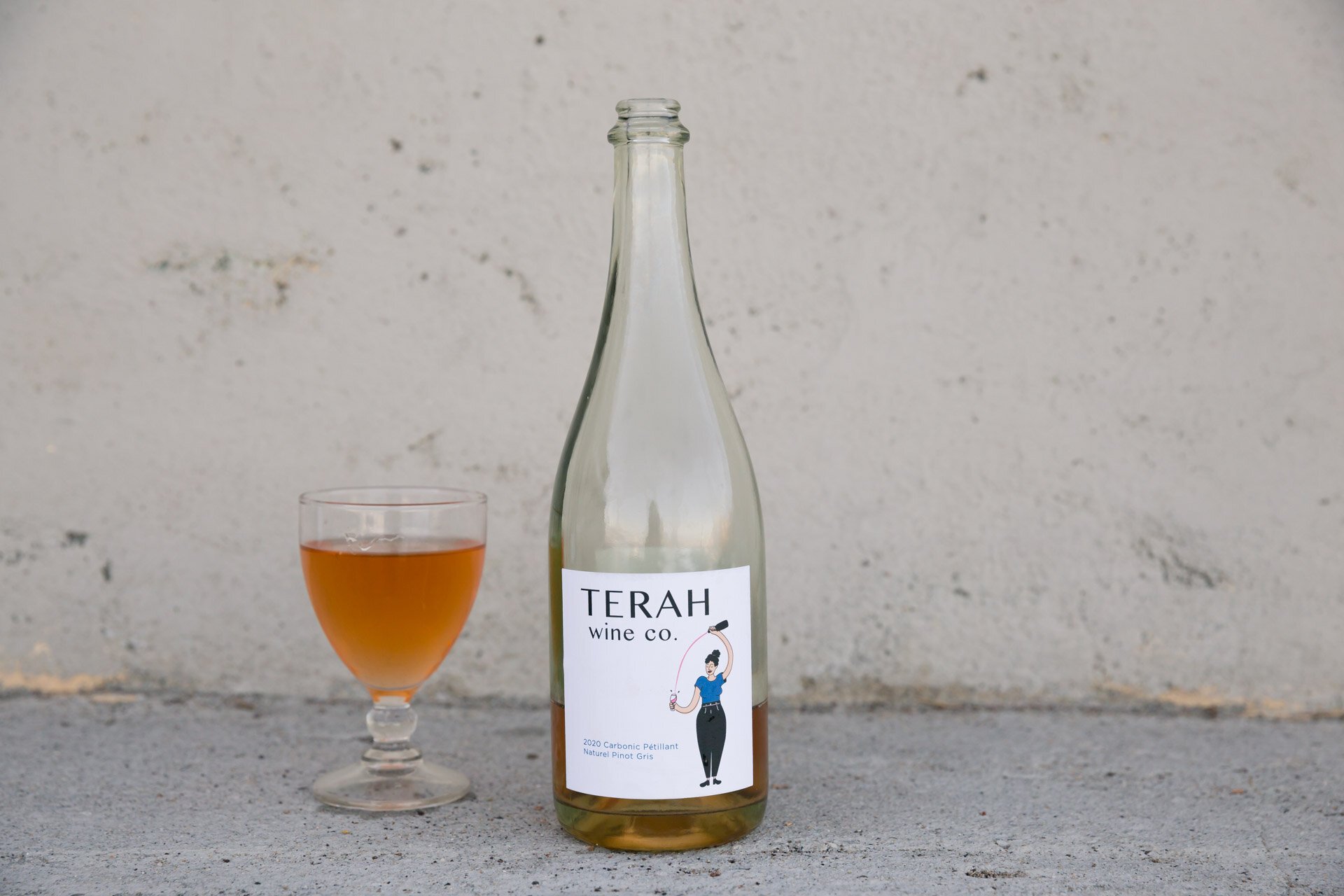Behind the vine
Terah Bajjalieh - Terah Wine Co. - California, USA
When do you think you fell in love with wine, enough to make a career of it?
I would say the pivotal point was about 12 years ago when I was thinking about going into culinary school. I love cooking, food, and exploring various cultures in this way through travel. However, I wasn't sure about the culinary school path. That’s when I thought about wine - it combined food, travel, culture, and adventure. Also from a career-side perspective, wine seemed to have many career path options. So I took a sommelier preparation course through the French Culinary Institute and I trained to take level 2 through the Court of Master Sommeliers. The Master Somms I learned from were very passionate about what they were teaching. I'd never witnessed such passion in my life and it piqued my curiosity enough to keep going. I spent a few years in hospitality, followed by training in various cellars. Once I started traveling and seeing different places and meeting people who shared the same interests in wine, it just felt right.
I started in wine 11 years ago. Since I started down this path, it's been constant growth and exploration. Sometimes in small ways and sometimes in big ways, but what’s important is that continued desire for growth. I went for a Master’s degree in Enology and Viticulture from Montpellier Supagro in France. I got into the position of winemaker about 3 years after graduating.
What story does your wine tell?
It tells my story and journey in the wine industry. When I first started tasting wines, I was inspired by classic, European styles. After a few years when I started to dig into things, I realized that the wines I enjoyed were by people who were making them in a more natural sense - farming organically, repairing soils, sometimes employing very traditional old techniques. Making my wine is about making the best wine that I can.
It all comes back to what I think the quality is about: finding great vineyards, farmed in socially and environmentally responsible ways.
It also shows my struggle as a woman, and professional trying to pave a path for myself. Once I finished grad school in Europe, I moved back to California. It took quite a bit of time to land a job that was a good fit. Starting my project was about making the best wine I could while pursuing an entrepreneurial path - something I believed I would be good at. Terah Wine Co. is an outlet for creative expression and challenge that hadn't been possible in my experience working for other people. The entire process has been very empowering.
“A lot of what I'm making I've never made before, but I have been curious about these various varieties and techniques. Some fermentations and experimentation can go totally wrong but they can also push boundaries and excel in other ways. I'm willing to take risks with my own wines.”
- Terah Bajjalieh
What misconceptions about wine do you think people should forget?
Cost isn't necessarily an indicator of quality. I think at the end of the day wine should be enjoyable. So drink what you like.
Take that with a grain of salt because comparing a $5 bottle to a $50 bottle is not the same thing. There are high costs to farm organically and responsibly where quality is the main driver. There are people out there who devote their lives to this pursuit of quality and are driven to constantly improve quality and push boundaries. Making wine is a physical labor of love with financial struggles that people have to go through to get their wines out in the world. It's wildly expensive to make, and you've often been forced into a particular lifestyle that certainly is not easy. For me, it took 10 years to start my brand and to be in a position in my life where I can be still. We live this lifestyle, so be conscious of these differences in the wine industry.
What great things about wine do you think people should remember?
Wine can tell a human story, it can give you glimpses into history, cultures and the world. When you simplify life and look at the basic needs: food, shelter, health, and love. I think wine has its place in all that. I do believe it's a great way to connect with people in a world where there's a less intimate connection. You can sit down to have a meal with someone from a different country who you may not be able to even communicate with and find a connection by sharing wine. I think that's a really beautiful thing.
What is a piece of advice you would give to a woman interested in breaking into the wine world?
Go for it! Learn, volunteer, get involved, and make as many connections as possible. There are a lot of facets or career options in this industry. So giving time to choosing what's right for you is a process and sometimes takes exploration. I think doing something once or twice gives you a better sense of what it may be like to work in that area - like working a harvest or two before deciding if that's an area you want to devote years of training to.
Who is a woman in wine you think everyone should know about?
There are two women:
In winemaking - Julie Cooper. I haven't had a ton of mentorship until quite recently through Batonnage, but Julie is someone who has really touched me in some ways. I worked for her at DuMOL winery in Sonoma in 2014-15. She was kind, supportive, and she ran the cellar logistics during harvest with ease and grace - she’s quite a badass. She gave me extra responsibility and guided me in the cellar. She gave me the ability to grow as a cellar hand and that was what I need at that moment in my career.
And a sommelier/entrepreneur - Shelley Lindgren. Seeing all the things she does is truly inspiring to me. She helped put Southern Italian wines on the map in California.
Where can women find your wine?
My website and some select retail and restaurant options across the US.



